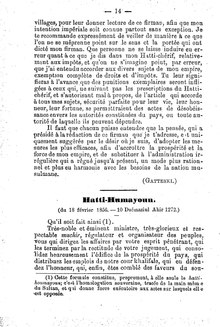This article needs additional citations for verification. (July 2008) |


The Imperial Reform Edict (Ottoman Turkish: اصلاحات خط همايونى, Islâhat Hatt-ı Hümâyûnu; Modern Turkish: Islâhat Fermânı)[1] was a February 18, 1856 edict of the Ottoman government and part of the Tanzimat reforms. The decree from Ottoman Sultan Abdulmejid I promised equality in education, government appointments, and administration of justice to all regardless of creed. The decree is often seen as a result of the influence of France and Britain, which assisted the Ottoman Empire against the Russians during the Crimean War (1853–1856) and the Treaty of Paris (1856) which ended the war.
Hatt-ı Hümayun was a promise by the Sultan to his citizens, subjects. Sultan promised to be held responsible for the constitution of the "Provincial Councils" and "Communal Councils" and the fairness of this process and the results. In matters concerning all the subjects of the State (related with Hatt-ı Hümayun), the spiritual leader of every congregation, along with its official appointed for one year by the government, will participate in the negotiations of 'Meclisi Valay-i Ahkām-i Adliyye', a law court established in 1837 to deal with cases of high officials. The sultan also promised freedom to vote in the councils.
These goals were promised by the sultan and emanated from his authority, indicating that the Hatt-ı Hümayun carried the authority of the Ottoman Sultanate itself, and was not a lower, bureaucratic reform.
- ^ Osman Nuri, Ahmet Refik, Abdülhamid-i Sani ve Devr-i Saltanatı: Hayat-i Hususiye ve Siyasiyesi, Kitaphane-yi İslam ve Askeri, 1911